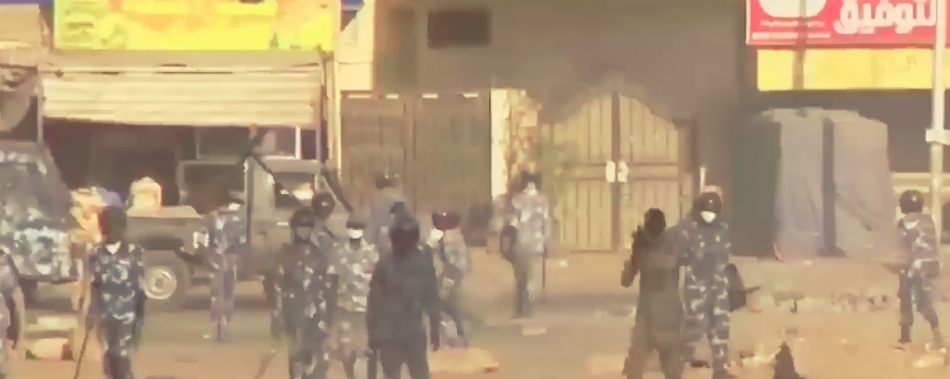
Khartoum/Geneva/New York: More than 83 people are feared killed and over 1126 injured across Khartoum, South Kordofan, North Darfur, Northern State and other regions of Sudan since April 13, 2023, when fierce fighting erupted between the army and the Rapid Support Forces (RSF) paramilitary group after days of tension between the two. The heaviest concentration of fighting is now taking place in the capital city of Khartoum. RSF claims to have taken charge of the President’s House also.
The Indian Embassy in Khartoum today reported the killing of an Indian national Albert Augustine, who hailed from Kerala. He was hit by a stray bullet.
As gunfire between the army and paramilitary forces, explosions and airstrikes continued today in Khartoum, many of the 5 million residents are stranded at home without electricity or water. Movement in Khartoum is restricted due to the insecurity creating challenges for doctors, nurses, patients, and ambulances to reach health facilities, and putting at risk the lives of those who need urgent medical care.
There are also reports of shortages of specialized medical personnel, including anesthesiologists. Water and power cuts are affecting the functionality of health facilities, and shortages of fuel for hospital generators are also being reported.
“There is a shared deep concern about the fighting, the violence that’s going on in Sudan; the threat that poses to civilians, that it poses to the Sudanese nation, and potentially poses even to the region,” America’s Secretary of States Antony J Blinken said today.
As fighting continues in Khartoum and other parts of Sudan, the World Health Organization has urged all parties to the conflict to respect the neutrality of health care and ensure unrestricted access to health facilities for those injured by the hostilities.
WHO reminded all parties of their obligations under International Humanitarian Law to protect the wounded and sick, civilians, health care workers, ambulances and health facilities.
What’s clear is that the people of Sudan have demanded a transition back to civilian rule. The United Nations Secretary-General’s spokesperson described the situation as “very concerning” and called for a calm and sustained commitment to democratic transition in the country. The UN along with the African Union, IGAD (Intergovernmental Authority for Development) and the Trilateral Mechanism is engaging all stakeholders to calm these tensions and secure a political agreement as soon as possible to see a return to a civilian-led transition.
Blinken said the warring generals, General Abdel Fattah al-Burhan, a military commander who has for years been the de facto leader of Sudan, and General Mohamed Hamdan Dagalo aka Hemetti of the RSF paramilitary, (who is considered close to Saudi Arabia and Russia and emerged powerful since the dismissal of President Omar al Bashir in April 2019), should ensure the protection of civilians and non-combatants as well as foreigners located in Sudan. Hemetti and al-Burhan are in disagreement over the proposed transition to civilian rule in Sudan.
Blinken stressed the need for an immediate ceasefire and a return to talks that were “very promising” in putting Sudan on the path to a full transition to a civilian-led government.
“People in Sudan want the military back in the barracks. They want democracy. They want a civilian-led government. Sudan needs to return to that path,” Blinken said.
WHO meanwhile said it was monitoring the health needs and resources across Khartoum and other affected cities to ensure that limited supplies were directed to where they were most needed. It claimed that the supplies it distributed to health facilities prior to this recent escalation of conflict were now exhausted, and many of the nine hospitals in Khartoum receiving injured civilians were reporting shortages of blood, transfusion equipment, intravenous fluids, medical supplies, and other life-saving commodities.
– global bihari bureau





